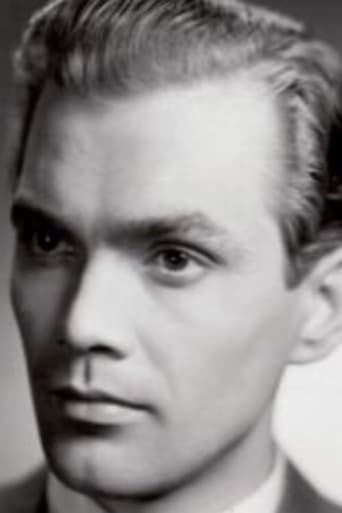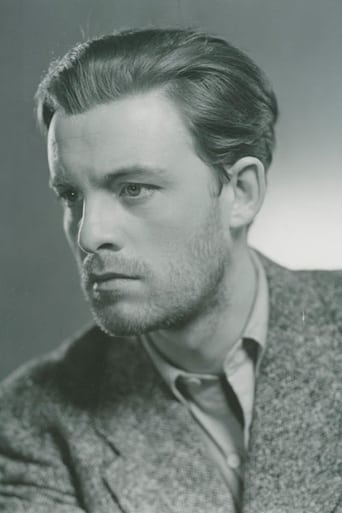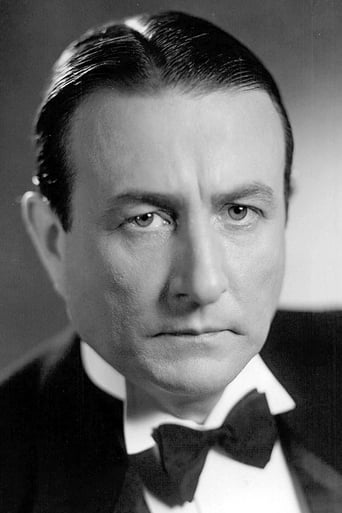Wordiezett
So much average
Mjeteconer
Just perfect...
Sexyloutak
Absolutely the worst movie.
FirstWitch
A movie that not only functions as a solid scarefest but a razor-sharp satire.
Smoreni Zmaj
Honestly, I have no idea why did I take this movie at all. After only few minutes I was at the edge of giving up o it. Movie is black and white, really slow, about ballerina and I'm allergic to ballet, and on top of it all it's Bergman who is known to be boring. I'm against prejudice, but mostly unaware how much I'm susceptible to it. Exactly what I specified as reasons to write off this movie as unwatchable makes it a masterpiece. You just have to relax, give over to it, reject pre-formed thoughts and enjoy art. The moment I stopped hating it movie enchanted me. After rehearsal is delayed for the evening, ballerina goes to stroll around nearby island where she spent summer as young girl and fell in love for the first time. She just visits spots from her past and remembers. Story is simple and slow, but strong and deep. Acting is unbelievably emotional. Camera and directing are fantastic. I felt that authors gave special attention and love to every frame. Every cadre is masterpiece of black and white photography. In last few decades life speeds up more and more and cinematography follows. Today's generations are trained to watch complicated thrillers, extreme sex and violence, cheap humor, sitcom romance and stories that move in speed of light. Film more and more becomes cheap entertainment without meaning. Movies like this one are here to remind us why is cinematography considered one of arts.9/10
TheLittleSongbird
Actually there is nothing wrong with Summer Interlude as such, it's just that I don't think it is quite on the same level as Ingmar Bergman's very best. Bergman's direction is as always superb. The cinematography positively shimmers, and the images of the sunny Swedish countryside are beautiful to look at. The writing is thought-provoking, affecting in its honesty and sweet in how it deals with the romantic elements. The story still has the dramatic intensity and structural complexity that helps to form the best of Bergman's films. The two lead characters are touching and are likable, Marie being world-weary and Henrik being timid. The acting helps to reflect that, especially Maj-Britt Nilsson whose performance is so sensitive that you wonder why she wasn't in more after this and Secrets of Women. Birger Malmsten is not quite in the same league but gives a well-contrasted performance still. All in all, a lovely film if not quite among Bergman's very best movies. 9/10 Bethany Cox
Claudio Carvalho
While waiting for the night rehearsal of the ballet Swan Lake, the lonely twenty-eight year-old ballerina Marie (Maj-Britt Nilsson) receives a diary through the mail. She travels by ferry to an island nearby Stockholm, where she recalls her first love Henrik (Birger Malmsten). Thirteen years ago, while traveling to spend her summer vacation with her aunt Elisabeth (Renée Björling) and her uncle Erland (Georg Funkquist), Marie meets Henrik in the ferry and sooner they fall in love for each other. They spend summer vacation together when a tragedy separates them and Marie builds a wall affecting her sentimental life."Sommarlek" is a simple little film of the great director Ingmar Bergman in the beginning of his successful career. The plot discloses through flashbacks a tragic and timeless love story affecting the life of the lead character that builds a wall to protect her sentiments and loses her innocence with her corrupt uncle. The cinematography, landscapes, sceneries and camera work are awesome, using magnificent locations and unusual angles to shot the movie. Maj-Britt Nilsson and Birger Malmsten have great performances in this beautiful and melancholic film. My vote is eight.Title (Brazil): "Juventude" ("Youth")
jandesimpson
Among outstanding film directors there are those who crash in with debut features that show something of the full extent of their talent (Satyajit Ray with "Pather Panchali", Neil Jordan with "Angel" and of course Orson Welles with "Citizen Kane") and those like Ingmar Bergman who creep into the scene with films that are little less than mediocre, but who develop slowly, almost unobtrusively, giving only occasional hints of the glories to come. Bergman first came to notice as the proficient scriptwriter for Alf Sjoberg's "Hets", a 1944 shocker with echos of "The Blue Angel". Sjoberg's direction is impressive with much use of expressionist shadows and angles. The strange thing about Bergman's directional debut, "Kris", two years later is what little he appeared to have absorbed from his mentor. "Kris" is a very two dimensional work that could have been made by almost anyone. This was followed by several similar apprentice works which again give very little indication of what was to come. I would date the emergence of the original Bergman voice from the appearance of "Summer Interlude" in 1951. Although on the surface this appears to be a very conventional tale of an idyllic romance cut short by a tragic twist of fate, the sort of youth/love/death cocktail that was the mainstay of so much Hollywood drama ("Kings Row", "Love Story" and "Dead Poets Society"), the treatment is often very personal in a way that we can almost feel an innate artist struggling to express something beyond the superficial. It opens with a visually stunning series of still-life shots of the sort that Ozu always inserted between each short dramatic scene. We immediately feel this is a film that is demanding to be taken seriously. When the ballerina heroine takes a boat to the archipelago where thirteen years before she met the young man who was to become the love of her life, memory is unleashed and we relive in flashbacks her past happiness. Sometimes Bergman is in complete control of his material as when the ballerina leaves the boat and uneasy memories seem reflected in the sound of the wind and there is a silent encounter with a mysterious elderly woman whose path almost touches hers - a device he was to use to even more chilling effect years later when Liv Ullmann passes an elderly lady in the corridor to an apartment flat in "Face to Face". In other places his command is less certain and borders on cliché - when the doomed young man speaks of his premonition of something dark, and indeed the shot of a black cloud a moment after the accident that is to prove fatal. Bergman also makes the mistake of sometimes cluttering the narrative with supporting characters which add very little to the forward flow - the rather tiresome behind the scenes workers at the theatre. Although the film is a romantic tragedy it differs from the works of his central period in the way it comes to terms with life's misfortunes. The ballerina learns from her memories that her life has a continuation, that it is still possible to forge new relationships. Bergman was to regain something of this confident belief in the worthwhile qualities of life in later works like "Cries and Whispers" and "Fanny and Alexander" but not until he had become resigned to rather than angered by God's silence. It is perhaps significant that in "Summer Interlude", where he had not quite sorted out his responses to life or the medium in which he was working, the most powerful scene of all is where the ballerina rails at God's silence after her lover has been taken from her and craves for the opportunity to spit at God should he appear. There is not a single scene that expresses anything like this that I can recall in Hollywood drama. It indicates more clearly than anything else in Bergman's output up to this point the path he was about to take in expressing his dark vision of the world, one in which the conventions of commercial cinema were to have no place.




